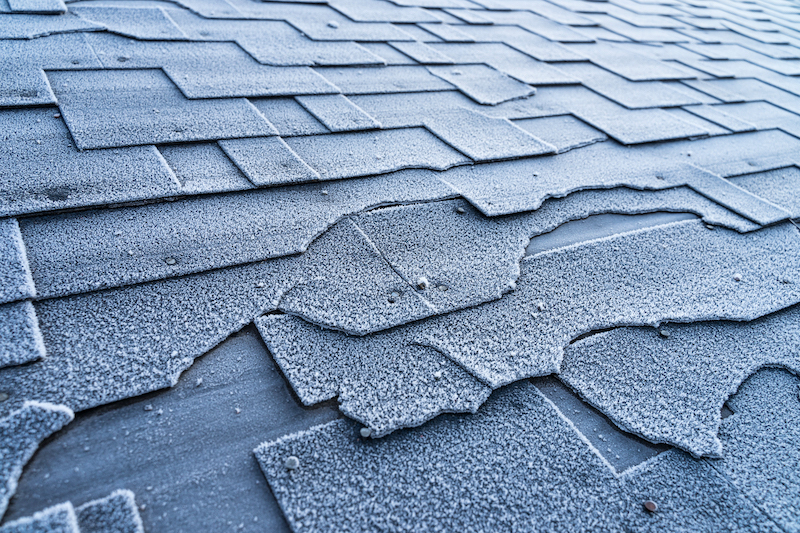Canada is no stranger to cold, snowy and icy winter weather, and roofing in Barrie and the surrounding areas aren’t immune from experiencing the brunt of it. While conventional roofs normally last for 20 years on average, the better care you take of yours, the more return on investment you’ll get out of it. It’s why it’s advised to have your roof professionally inspected at least twice a year, once in the fall before winter weather sets in and then again in the spring or early summer after it has endured another cold season. Scheduling inspections around winter is recommended purposefully, as it’s this season that strains your roofing the most. In this post, we’ll take a closer look at three key ways winter weather can impact your roof. Read on for more information:
1. Ice Dams and Water Damage
Ice dams form when melting snow from the roof re-freezes around the gutters and roofline before it has a chance to drain away from the property. When this occurs, it creates a logjam of sorts for any melting snow behind it, creating a buildup on the roofline. If too much of it builds up, water will simply have nowhere to drain, possibly leading to moisture intrusion under the roof shingles and water damage in your home. Even just a small amount of water intrusion can lead to extensive water damage restoration and subsequent mold remediation.
2. Snowfall and Poor Roof Snow Removal
In order to avoid ice dams and snow buildup around the roofline, many property owners will take matters into their own hands and attempt to clear a few feet away at the edge of the roof. While this is a good idea in principle, how they go about doing it can leave a lot to be desired. For example, many homeowners use a snow shovel and rock salt to perform this. And while shovels and salt are ideal for clearing driveways, they’re not meant to be used on roofs. This is because while they may prevent ice dams, they can lead to extensive shingle damage. The best way to clear snow from your roof is to use a specially designed roof rake or to hire an expert to handle it for you.
3. Shingle Damage
Aside from cold temperatures, snow and ice, winter weather is also often characterized by high winds — and these high winds can have an impact on your roof’s shingles. A strong gust of wind can be the kiss of death for already loose or aging shingles, and regular exposure to snow and ice can take its toll over time as well.
Looking for Roofing in Barrie and the Surrounding Area? Contact Ainger Roofing Today
After a rough, Canadian winter, it’s always a good idea to have your roof professionally inspected so that any repairs can be made before they turn into big, costly problems. For more information on how winter weather can impact your roofing in Barrie, and to schedule an appointment to have your roof inspected and maintained, contact us today.

